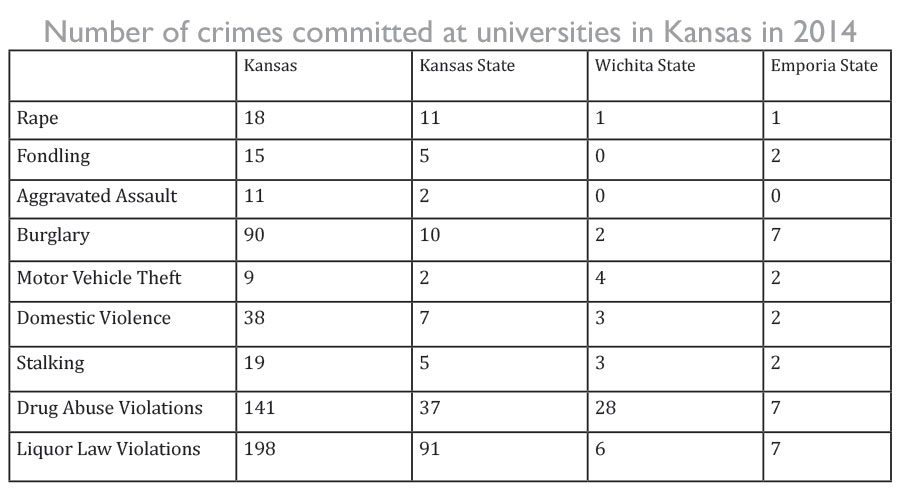Be aware of college security environment
New concealed carry laws add additional concern
More stories from Lauren Mitchell
This summer, as the recently graduated class of 2017 is purchasing items for dorm rooms, they and other Kansas college students will face an additional security concern. Along with date rape, substance abuse, theft and other crimes that are a concern at colleges, the expiration of the current extensions under the 2013 Personal and Family Protection Act will give individuals the right to conceal carry firearms on Kansas campuses. At a time when many students are venturing out on their own for the first time, the reality is that in today’s world, safety and security of college life is a critical factor to consider.
According to the Kansas Board of Regents’ Weapons Policy, “Beginning July 1, 2017, any individual who is 21 years of age or older and who is lawfully eligible to carry a concealed handgun in Kansas shall not be precluded from doing so on state university campuses except in buildings and areas of buildings for which adequate security measures are provided, and except as otherwise prohibited by law.” With this policy change, Kansas joins seven other states in allowing concealed carry on campus. Although Kansas has had concealed carry since 2006, and regardless of personal position on gun control laws, this change affects everyone’s frame of reference when it comes to awareness of others in classrooms, at sporting events, in the dorms, and all other campus locations.
Concealed carry is far from the only security risk that college students face on a daily basis, however. The combined elements of freedom from parental supervision, exposure to new people and situations, as well as increased alcohol and drug availability creates an environment where sexual assault risk is high. According to the National Sexual Violence Resource Center’s website, one in five women and one in 16 men are sexually assaulted while in college. The unfortunate reality is, however, this statistic may be low due to the fact that many college sexual assaults are unreported.
Although these security risks may seem overwhelming when combined with the other stressors of leaving for college, students should remember that they are still empowered to ensure their own safety on some level. The first step is obviously to be aware of the dangers.
Read the campus weapons policy and request information on how the school handles sexual assault situations. More importantly, take active steps to reduce risks, including attending campus police orientation and sexual assault awareness programs, taking advantage of campus safety escort programs, traveling in pairs and paying attention to surroundings. It is an unfortunate sign of the times that in addition to dealing with dorm life and surviving mid-term exams, attention has to be given to the fact that college parties may not always end well and that a nearby student may have a gun in his backpack.

